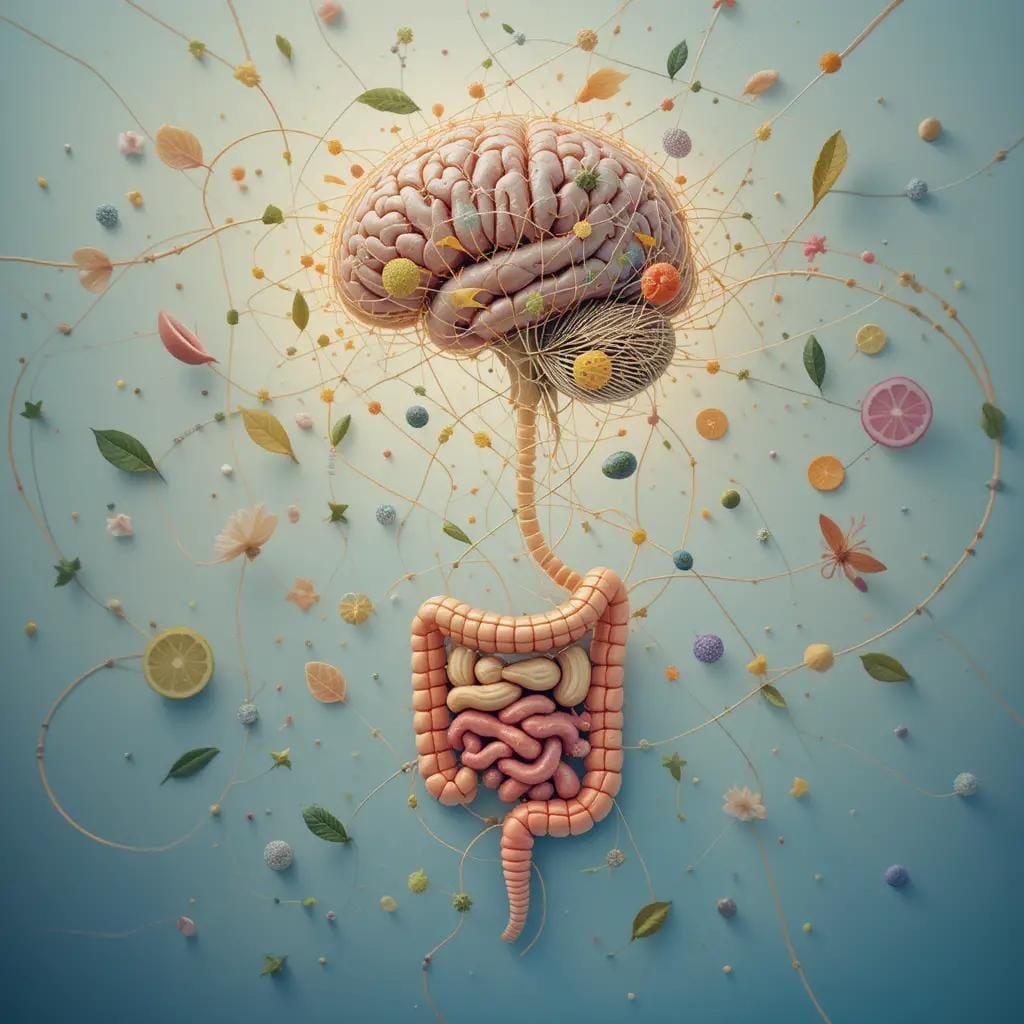Nutrition serves as the foundation of overall health, influencing everything from energy levels and mental clarity to disease prevention and longevity. In today’s fast-paced society, many prioritize convenience over well-being, often relying on processed foods that lack essential nutrients. This trend has led to an increase in lifestyle-related diseases, such as obesity, diabetes, and cardiovascular conditions. Understanding the fundamental role of nutrition is critical for maintaining optimal health and enhancing quality of life.
This article delves into the significance of proper nutrition, detailing its essential components, benefits, and practical strategies for adopting a well-balanced diet. By exploring the science behind key nutrients, their functions, and how dietary choices impact long-term health, individuals can gain the knowledge necessary to make informed decisions. Additionally, this discussion will highlight how personalized dietary approaches, mindful eating habits, and sustainable nutrition practices contribute to overall well-being. A strong nutritional foundation empowers individuals to prevent illness, sustain energy levels, and achieve greater vitality throughout life.
What is Nutrition?
Understanding the Basics

Nutrition refers to the biological process by which our bodies absorb and utilize essential food substances for growth, maintenance, and overall function. It encompasses a balance of macronutrients—carbohydrates, proteins, and fats—along with micronutrients, including vitamins and minerals. Each plays a crucial role in maintaining bodily processes and supporting overall well-being. Beyond merely consuming food, nutrition also involves digestion, absorption, and metabolism, ensuring that every cell receives the necessary components to function effectively.
Nutritional science continues to evolve, with ongoing research uncovering deeper insights into how dietary choices influence genetic expression, gut microbiota, and long-term health. Factors such as food quality, nutrient bioavailability, and individual metabolic differences all contribute to the body’s ability to derive optimal benefits from diet. A well-balanced nutrition plan is not only about sustaining life but also about optimizing well-being, energy levels, and resilience against diseases.
Key Nutrients and Their Functions
- Carbohydrates: Serve as the body’s primary energy source, fueling brain function and physical activity. Found in whole grains, fruits, and vegetables, they provide essential fiber and nutrients for digestive health.
- Proteins: Essential for tissue repair, immune function, and muscle growth, proteins serve as building blocks for enzymes and hormones. They are sourced from lean meats, legumes, dairy, and plant-based alternatives like tofu and quinoa.
- Fats: Necessary for brain health, energy storage, and hormone regulation. Healthy fat sources include nuts, seeds, avocados, and olive oil, which provide essential fatty acids like omega-3s that support cognitive function and cardiovascular health.
- Vitamins: Organic compounds that facilitate various metabolic functions, playing a role in immune health, vision, and cell repair. Present in fruits, vegetables, and animal products, vitamins such as C, D, and B-complex are crucial for daily physiological processes.
- Minerals: Inorganic elements such as calcium, iron, and magnesium are vital for bone strength, oxygen transport, and enzymatic reactions. These nutrients, found in a variety of foods, support overall systemic balance and physiological efficiency.
Why is Nutrition Important?
Physical Health Benefits
Proper nutrition is fundamental to maintaining and improving overall physical health. It supports several critical bodily functions:
- Immune System Function: Nutrients like vitamins C and E, zinc, and omega-3 fatty acids strengthen the immune system, enhancing the body’s ability to combat infections and inflammation.
- Weight Management: A balanced diet prevents obesity and related health complications, including diabetes, heart disease, and hypertension. Maintaining a healthy weight reduces strain on joints, cardiovascular function, and metabolic processes.
- Chronic Disease Prevention: Diets rich in whole grains, fruits, and vegetables reduce the risk of chronic illnesses such as cardiovascular disease, hypertension, and certain cancers. Antioxidant-rich foods neutralize free radicals that contribute to cellular damage.
- Bone and Muscle Health: Calcium, vitamin D, and protein contribute to the development and maintenance of strong bones and muscles, preventing osteoporosis and muscle degeneration. Proper intake of phosphorus and magnesium also supports structural integrity.
- Energy Regulation: Carbohydrates and healthy fats provide sustained energy, while proteins facilitate muscle recovery and tissue repair. A well-balanced diet enhances metabolic efficiency, optimizing daily performance and reducing fatigue.
Mental and Cognitive Benefits
Nutrition significantly influences mental well-being and cognitive function:
- Mood Regulation: Omega-3 fatty acids, magnesium, and B vitamins help stabilize mood and reduce symptoms of anxiety and depression by supporting neurotransmitter production.
- Cognitive Health: Antioxidant-rich foods such as berries and leafy greens protect the brain from oxidative stress, potentially lowering the risk of neurodegenerative diseases like Alzheimer’s and Parkinson’s.
- Sleep Quality: Nutrients like magnesium and tryptophan aid in regulating sleep patterns, promoting restful and rejuvenating sleep. A well-balanced diet also influences circadian rhythms and stress hormone levels.

Social and Economic Impact
The effects of good nutrition extend beyond individual health:
- Enhanced Productivity: Well-nourished individuals exhibit improved focus, efficiency, and workplace performance. Cognitive endurance is enhanced through balanced blood sugar levels and proper hydration.
- Lower Healthcare Costs: Preventative nutrition reduces the prevalence of diet-related illnesses, alleviating financial burdens on healthcare systems and individuals. Investing in proper nutrition ultimately lowers the risk of hospitalization and chronic disease management.
How to Achieve Optimal Nutrition
Principles of a Balanced Diet
Achieving optimal nutrition involves consuming a diverse and balanced selection of foods:
- Fruits and Vegetables: Aim for at least five servings per day to ensure adequate intake of fiber, vitamins, and minerals that support immune and digestive health.
- Whole Grains: Opt for whole grains such as brown rice, quinoa, and whole wheat over refined grains to maintain nutrient density, stabilize blood sugar, and support gut microbiota.
- Lean Proteins: Include both plant-based and animal-based protein sources, such as beans, poultry, fish, and eggs, to provide essential amino acids for muscle and tissue repair.
- Healthy Fats: Focus on unsaturated fats from sources like avocados, flaxseeds, and olive oil, while minimizing intake of saturated and trans fats that contribute to cardiovascular disease.
- Hydration: Drinking sufficient water throughout the day supports digestion, circulation, and temperature regulation, preventing dehydration-related fatigue and headaches.
Practical Strategies for Healthy Eating
Making sustainable dietary changes is key to long-term success:
- Plan Meals in Advance: Preparing meals ahead of time reduces the temptation to consume unhealthy, processed foods and supports mindful eating.
- Read Food Labels: Understanding nutritional information helps make informed decisions about food choices, reducing intake of hidden sugars and sodium.
- Practice Portion Control: Using smaller plates and measuring serving sizes helps prevent overeating and promotes digestive efficiency.
- Limit Processed Foods: Processed foods are often high in sugar, sodium, and unhealthy fats, making it essential to minimize consumption and prioritize whole food alternatives.
- Emphasize Moderation: Enjoying occasional treats is acceptable, provided they are balanced with nutrient-dense foods that support overall health.
Conclusion
Nutrition is a vital determinant of overall health and longevity. By understanding the significance of proper nutrition and making mindful food choices, individuals can enhance physical health, mental well-being, and quality of life. Good nutrition is not about restrictive eating but rather about fostering a balanced, enjoyable, and sustainable diet that supports optimal body function.
Taking small, consistent steps toward healthier eating habits can yield significant long-term benefits. By prioritizing nutrient-rich foods, staying hydrated, and making informed dietary decisions, anyone can embark on a path toward lasting wellness and vitality.




